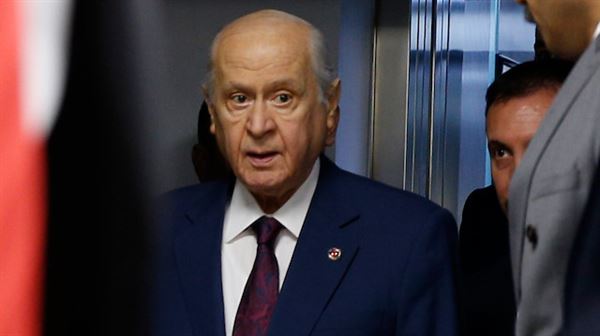A Turkish opposition party leader on Saturday blasted U.S. praise for the leader of a terrorist group Turkey has targeted in its anti-terror operatio
A Turkish opposition party leader on Saturday blasted U.S. praise for the leader of a terrorist group Turkey has targeted in its anti-terror operation in northern Syria.
“It is shameful, illegal and despicable that an allied country [U.S.] shows favors and appreciates a murderer [Ferhat Abdi Sahin] sought with [an Interpol] red notice,” said Devlet Bahceli, leader of the Nationalist Movement (MHP).
Bahceli was referring to U.S. praise for Ferhat Abdi Sahin, or Mazloum Kobani, leader of the YPG/PKK, the Syrian offshoot of the terrorist group PKK.
Speaking at his party’s headquarters in Ankara, Bahceli went on to say that Turkey is not at a stage where it will question its alliance with Western countries, some of whom have raised objections to its counter-terrorism operation in northern Syria.
Earlier this week, U.S. Senators Lindsey Graham and Chris Van Hollen asked the U.S. State Department to issue Sahin a visa so he could visit Washington.
U.S. President Donald Trump has spoken highly of Sahin on Twitter, saying: “I look forward to seeing you.”
This attitude was criticized by senior Turkish officials, saying as Sahin is a terrorist wanted with a red notice he should be treated accordingly in line with Ankara’s agreements with Washington.
At the direction of President Recep Tayyip Erdogan, Justice Minister Abdulhamit Gul Friday said Turkey would get in touch with U.S. officials about the terrorist’s extradition if he sets foot on U.S. soil.
In its more than 30-year terror campaign against Turkey, the PKK — listed as a terrorist organization by Turkey, the U.S. and the European Union — has been responsible for deaths of 40,000 people, including women, children and infants.
